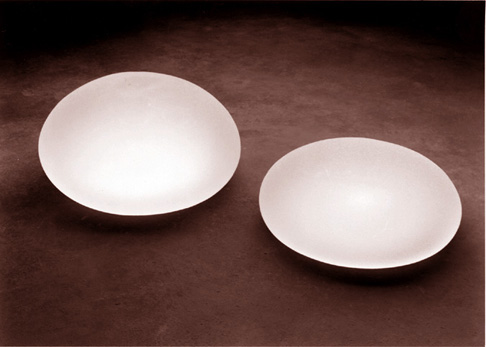Yesterday, the FDA released a White Paper and Advisory Statement on Anaplastic Large Cell Lymphoma (ALCL) in women with breast implants. It is important that all patients and plastic surgeons understand the current state of knowledge surrounding this condition.
What Are My Chances of Getting ALCL if I Get Breast Implants?
This condition is incredibly rare. In fact, the known ALCL cases are too few to say conclusively that breast implants cause the disease. Efforts over the past 25 years by all the worlds major plastic surgery societies to raise awareness among members and to identify patients with ALCL have identified 34 unique cases worldwide among an estimated 10 million+ implanted devices. That’s about 1 in 300,000. To put this in perspective: the chance that you will get hit by lightning at some time during your lifetime is 1 in 3000-15000, depending on your occupation. The chances are the same of you knowing 50 people who have been hit by lightning or one person with breast implant associated ALCL. On the other hand, the chance a developing a “real” breast cancer is 1 in 8.
So it’s Rare … but What if it Happens to Me?
As opposed to the systemic, nodal pattern of ALCL, in published reports, ALCL seen in the presence of breast implants has demonstrated an indolent course. In other words, it doesn’t spread. The women who developed ALCL, were cured with treatment. While ALCL seen in the presence of breast implants does fulfill the current WHO classification for ALCL, a form of Non-Hodgkins Lymphoma, the type of ALCL associated with breast implants potentially represents a distinct clinical entity. This condition is clearly NOT breast cancer.
Because of the extreme rarity of this condition, at this point no standard treatment has been determined. ALCL has been treated with everything from simple explantation (removal of the breast implant) and capsulectomy (removal of the scar around the breast implant) to aggressive systemic therapy. With either treatment, the condition was resolved.
Where Does the FDA Stand?
The FDA has not changed the status or availability of breast implants and has reaffirmed that the devices are safe and effective. In order to better understand this rare condition, the FDA has entered into an agreement with the American Society of Plastic Surgeons (ASPS) to create a registry for ALCL cases in the presence of breast implants. Until this registry is up and running, any clinical case will be reported directly to FDA. The FDA documents provide instructions for how to report any clinical cases to FDA. The American Society for Aesthetic Plastic Surgery fully supports the FDA and ASPS in this endeavor.
It’s Rare … But What Should I Look For?
Despite what you may have heard on the nightly news, the vast majority of breast implant patients will never have this problem. Moreover, most plastic surgeons will never see a single case in a lifetime of practice. The occurrence of ALCL with implants is so rare that routine screening of asymptomatic patients is not indicated; however, we all need to know what signs to look for.
The Presentation of ALCL with Breast Implants
This unusual tumor presents in two main ways:
- A collection of fluid (a seroma) that develops well after breast implant placement
- A mass involving the scar around a breast implant (the capsule)
Non specific findings: pain, lumps, swelling, or asymmetry, have also been associated with the above findings, and some cases have been associated with capsular contracture (firmness of the breast). If you think there is a problem, contact your Board Certified Plastic Surgeon today for follow-up.
ALCL Does Not Act Like Breast Cancer and There is More Good News
Knowledge is power. Raising awareness should be empowering and not frightening. Recent news reports on ALCL and breast implants seem a bit overblown; however, they do serve as a reminder that all women, with and without breast implants, need to be concerned about breast health. While ALCL is unlikely, the incidence of breast cancer is one in nine, and the vast majority of women who develop breast cancer do not have a family history of the disease.
The good news it that breast health is being discussed openly. I encourage you to do monthly breast exams, and to obtain routine mammography. The sooner a breast cancer is found, the easier it is to treat, and the better the quality of the life saved. Routine screening may seem a bother, but the life you save, will be yours to enjoy.
The ASAPS, the ASPS and Board Certified Plastic Surgeons around the world are all working together on this and other issues to keep cosmetic plastic surgery safe and predictable for everyone. For more information on ALCL and breast implants follow these links:
Previous Post Next Post